Rough and Tumble Play: Love Disguised as a Wrestling Match
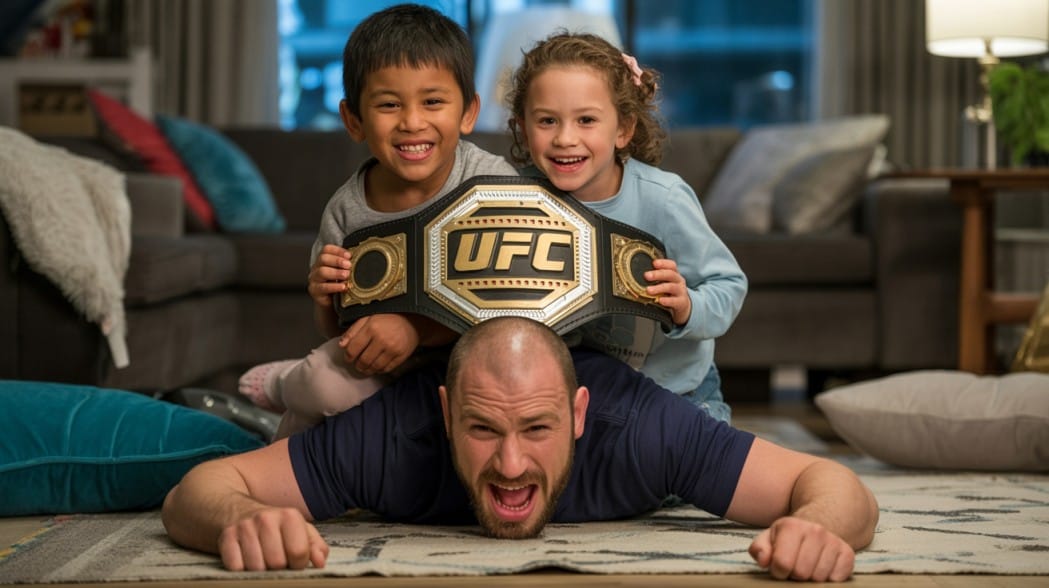
Quick Summary:
This blog dives into the science and soul of rough and tumble play. The wrestling, chasing, and tickling kind of fun that turns out to be a developmental jackpot. From boosting executive function and emotional regulation to strengthening the father–child bond, we explore how this playful chaos is actually parenting gold.
Play Fighting. Not Just for Chaos Anymore
IIIIIIIIIIIIIT’S TIIIIIIIME!!!
In the blue corner, weighing 78 kilograms.
With belts in Boxing, Capoeira, and Street Fighting (earned in living rooms and backyards).
Known for his bone-crushing tickles and world-class slam-dunks on plush toys…
He’s the bruised, battered, beloved… Dad the Dinosaur Destroyer!
And in the red corner, weighing a solid 20 kilos.
With lethal skills in pillow-throwing, couch-jumping, and launching surprise teddy bear attacks.
Armed with water guns, booger bombs, and a sack of monkey farts.
He’s the fearless, the fast, the Little Giant… SAMUELLLLLL!
FIIIIIGHT!!!
Welcome to our weekly tradition:
UFC. Ultimate Fighting with a Child.
No knockout. No blood. Just giggles, grapples, and the occasional elbow to the kidney. (My kidney, by the way.)
But here’s the twist: this isn’t just silliness. It’s science.
What looks like mayhem is actually rough and tumble play (RTP), a powerful tool for brain development, emotional growth, and connection.
Turns out, when you wrestle with your kid, you’re not just playing.
You’re shaping a brain. Strengthening a bond. And becoming the coach they didn’t know they needed.
What Is Rough and Tumble Play?
Rough and tumble play isn’t chaos. It just looks like it.
It’s the chase before the tackle. The roll across the carpet. The mid-air pillow block.
It’s wrestling, tickling, roaring like wild animals, and laughing so hard someone snorts.
But here’s the rule that separates it from real fighting: everyone’s in on the fun.
No fear. No domination. Just two players learning how to move, push, pull, and pause together. There are stop signals. Safe words. Tap-outs.
And inside all that wild movement is something subtle:
The connection.
Call and response. Energy and empathy. A back-and-forth dance of trust.
And the science backs it:
“Rough-and-tumble play (RTP) is a common form of play between fathers and children. It has been suggested that RTP can contribute to the development of selfregulation.”
PMC: Rough-and-Tumble Play & Aggression Regulation
It Builds Brains (Seriously)
Who in this world would think that punching and sweeping would work better to boost the brain than flash cards and (something better than quiet study)?
Rough and tumble play (RTP) doesn’t just wear kids out. It wakes their prefrontal cortex up. That’s the part of the brain in charge of executive functions: attention, memory, impulse control, and problem-solving. All the stuff that makes kids little adults-in-training.
One study showed strong links between RTP and both better working memory skills and fewer working memory problems:
Better working memory skills
It means the child is better at:
- Following instructions with multiple steps
- Solving puzzles or building Lego sets
- Staying focused without getting sidetracked
- Holding onto information long enough to use it, like remembering a series of numbers or the following rule in a game
Fewer working-memory problems
This means the child is less likely to:
- Forget what they were just asked to do
- Lose track of what they’re doing mid-task
- Get overwhelmed when school instructions come quickly
- Struggle to complete something because they missed a step
In real life, this manifests as a child who can follow a recipe with minimal help, remember the rules of tag, or calmly put on socks after hearing a three-step instruction. All without constant nagging or frustration.
Why does this matter? Because working memory is the backbone of concentration, learning, and self-reliance, and play fighting builds it.
“Both RTP-Quality and RTP-Frequency were related to working-memory ability… Fathers who frequently engaged in RTP also rated their child as having fewer working-memory problems.”
PMC: RTP and Executive Function in Early Childhood
That’s cognitive development disguised as wrestling. Just the kind of messy, messy gold we dads live for.
Emotional Regulation on the Mat
Children whose fathers engage in regular, positive play, including roughhousing, show greater emotional self-regulation as they grow.
“…This seems to help children learn to control their feelings. It may also make them better at regulating their own behaviour later on, as they enter settings where those skills are important…”
Cambridge: Playtime with Dad and Self-Control
That’s not just feel-good science. It’s a blueprint for raising kids who can ride emotional waves instead of being wiped out by them.
Because big feelings don’t disappear. They need a place to play.
And rough and tumble play is that place.
Through all the rolling, chasing, and giggle-fueled grappling, kids hit emotional highs (excitement, competition) and lows (losing, frustration). Then, they learn how to reset, recalibrate, and keep going.
Call it a practice ring for self-control.
A full-body rehearsal for real-life emotions.
Bonding and Trust Through Rough Play
There’s a reason kids keep coming back for “just one more round.”
When a dad dives into roughhousing, he’s doing more than tossing his kid on the couch.
He’s saying: I see you. I’m with you. You’re safe, even when I’m a roaring dinosaur.
That kind of play, full-body and full-hearted, builds something deeper than laughs.
It builds trust.
Because when a child knows they can push, tumble, flip, and still land in your arms… they learn what security feels like.
“The primary function of father–child RTP is attachment: children who regularly engage in RTP with their fathers quickly develop an emotional bond with them.”
ScienceDirect: RTP & Father–Child Attachment Bond
In other words, if you want to strengthen the relationship with your kid, fight with them. In a playful way, obviously.
Nature Hardwired It for a Reason
Ever seen lion cubs pounce or puppies wrestle? That’s RTP in the wild.
Across the animal kingdom, this kind of rough play teaches risk-taking, restraint, and resilience. It’s not a coincidence. It’s adaptive.
In humans, it helps kids learn how to:
- Push boundaries without crossing them
- Handle loss without melting down
- Builds resilience and emotional control
- Collaborate in high-energy situations
As scientists put it:
“RTP experience is important for emotional control and the learning of restraint in what may be competitive or conflictual situations.”
Frontiers in Psychology: Rough-and-Tumble Play in Children
Roughhousing: How to Do It Safely and Like a Pro
You don’t need to be a gym dad. You just need to show up, get a little silly, and keep it safe. Here’s how to turn roughhousing into one of your best parenting moves:
Set the Ground Rules First
Lay it out before the takedown begins.
What’s cool: tumbling, wrestling, pillow body slams.
What’s off-limits: biting, hair pulling, anything you’d see in a late-night action film.
Keep it fun, not competitive. The goal isn’t to win, it’s to connect.
Use Clear Stop Signals
Agree on safety cues like:
“Tap out.”
“Pause!”
Or something absurd like: “Pineapple!”
Then honour them. Every time.
It teaches your kid that boundaries matter and that you’re listening.
Conclusion: Play Fighting Activates the Brain. And the Bond.
Rough and tumble play is messy. Unpredictable. Sometimes ends in bruised shins and crushed couch cushions.
But beneath all the chaos, costumes, and monkey fart attacks lies a quiet truth:
This is one of the most powerful ways to parent.
It’s teaching. It’s therapy. It’s mentorship disguised as mayhem.
Because when you step into that imaginary ring, you’re not just playing.
You’re showing your kid what strength feels like when it’s gentle.
What connection looks like when it’s physical.
What love means when it moves.
So roll up your sleeves. Get down on the mat. Embrace the madness.
Because these aren’t just Saturday morning brawls.
They’re memories, muscles, and trust in the making.
And years from now, they’ll still feel it, every time they step into the world with confidence.
TL;DR
Rough and tumble play is more than fun. It’s foundational.
- Boosts working memory and attention
- Builds emotional regulation and resilience
- Strengthens father–child attachment
- Teaches boundaries, empathy, and trust. All through physical connection
In short: play fighting isn’t a distraction from development. It is development.
Your funniest rough and tumble moment? We want to hear it.
Drop it in the comments or shoot us an email.
References
- PMC: Rough-and-Tumble Play & Aggression Regulation
- PMC: RTP and Executive Function in Early Childhood
- Cambridge: Playtime with Dad and Self-Control
- ScienceDirect: Evolutionary Roots of Rough-and-Tumble Play
- Tandfonline: RTP Quality & Father–Child Bond
- ResearchGate: Fathers’ Perceptions of Rough-and-Tumble Play
- Frontiers in Psychology: Rough-and-Tumble Play in Children
Frequently Asked Questions
Rough and tumble play is important because it develops far more than muscles—it builds minds and bonds.
It helps children strengthen executive functions like working memory and self-control, while also teaching social skills such as turn-taking, boundary-setting, and emotional regulation. For dads, it’s a natural and powerful way to build connection, trust, and resilience through laughter, movement, and a little joyful chaos.
Yes, rough and tumble play is not only developmentally appropriate, it’s biologically wired.
From lion cubs to toddlers, playful wrestling is how young mammals learn risk-taking, self-regulation, and social interaction. When guided by a caring adult, especially a father, roughhousing becomes a safe, structured environment for kids to practice emotional control and physical confidence, both essential for healthy development.

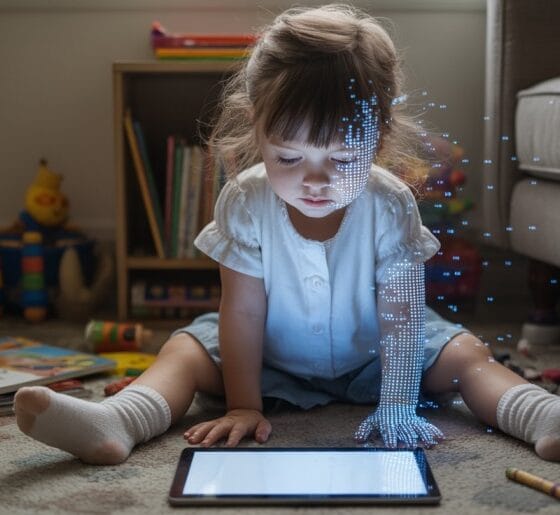
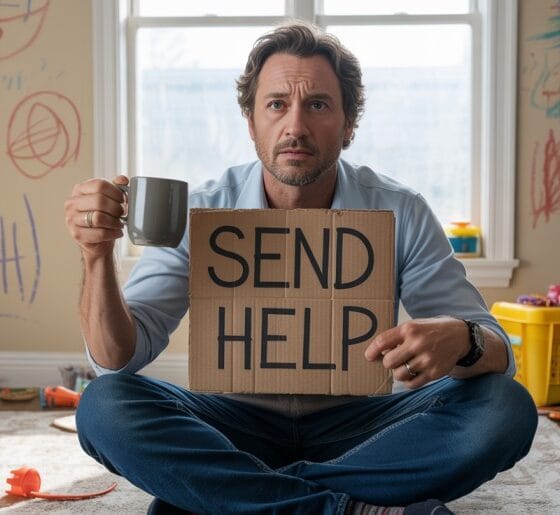
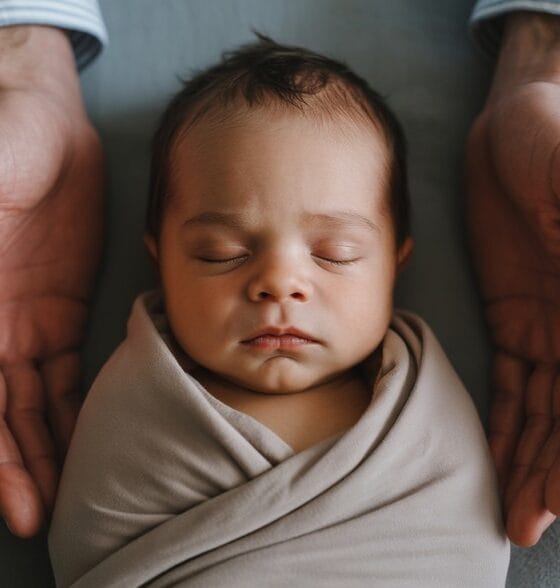
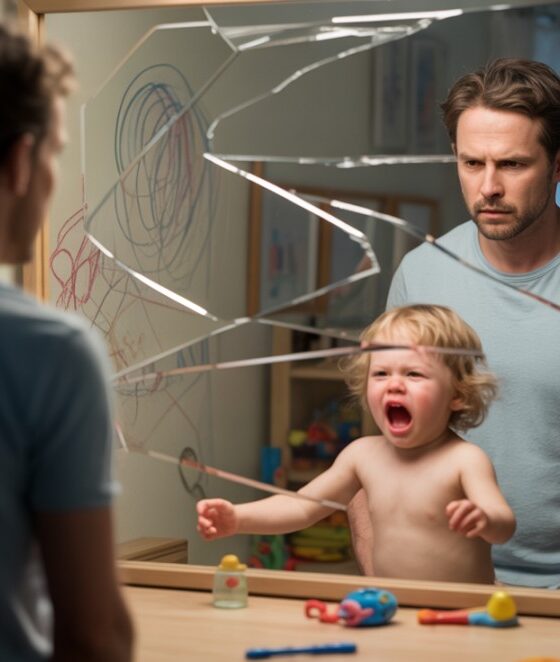
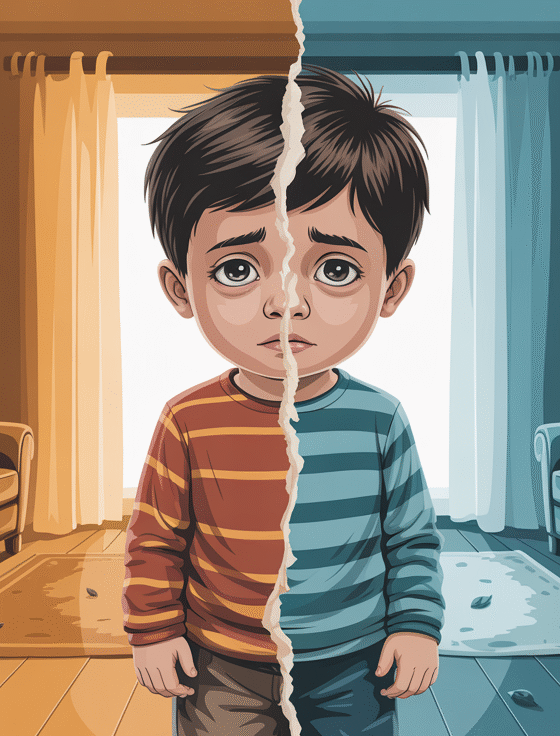


Rough and Tumble Play: Love Disguised as a Wrestling Match
07/16/2025You’re showing your kid what strength feels like when it’s gentle.